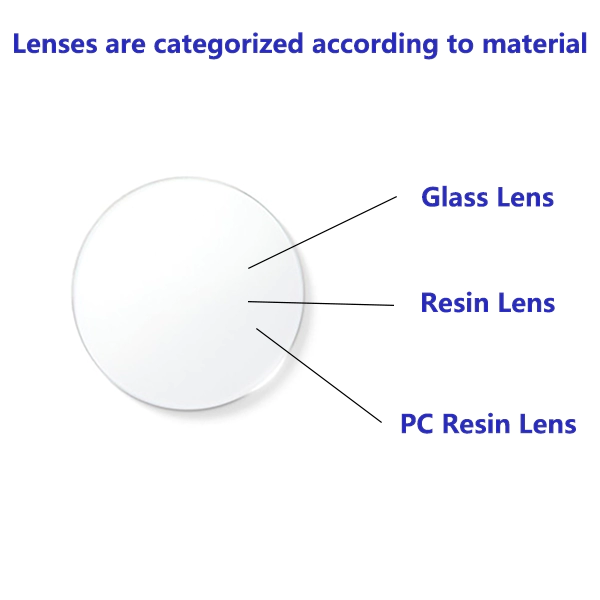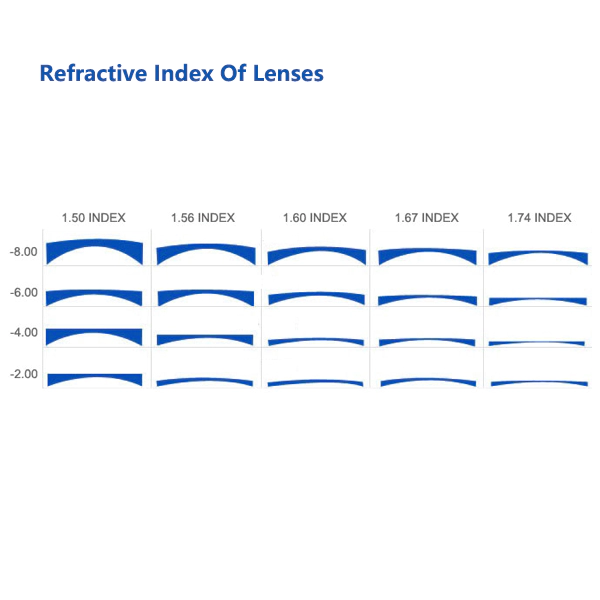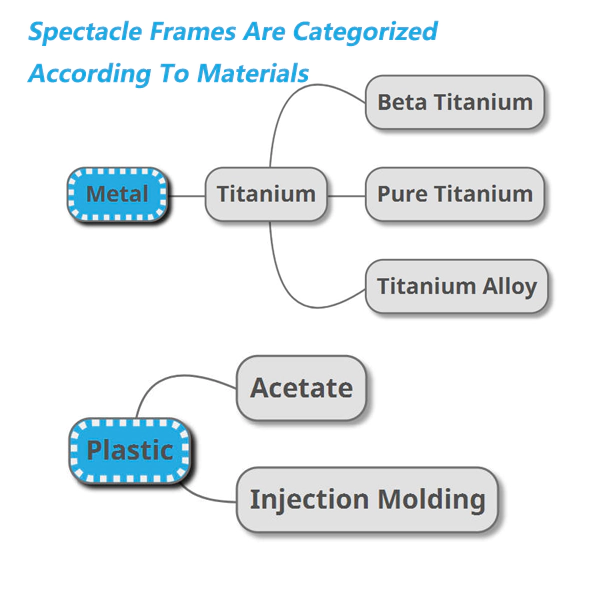We all have the impressive experience that when going to an optical store with a prescription, the clerk will recommend that we buy frames with many features and high prices, and words we’ve rarely heard of such as anti-blue light and new materials will come tilting out of the blue, and for a split second we’ll be at a loss for what to do.
There are three parts involved in all of our eyeglass fittings, optometry, lens selection, and frame selection. Each part is priced differently depending on the features, materials, and quality.
1. lenses of different materials with different functions will have different prices.

Glass lenses are rarely seen in the market nowadays, most of them are resin lenses and PC resin lenses. However, PC resin lenses are more expensive than resin lenses because PC resin lenses are an upgraded version of resin lenses, which are lighter and more resistant to falls.

As we have seen, the higher the refractive index, the thinner the lens will be, and of course, the price will be higher.
Usually, merchants will recommend their customers buy high-refractive light eyeglass lenses, but there are optimal refractive ranges for different degrees of vision. If you have a low-vision prescription, you don’t have to think about getting high-refractive index lenses at all.
| Myopic Range | Reference Refractive Index |
|---|---|
| 0-300 Mild myopia | 1.50\1.56 |
| 300-600 Moderate myopia | 1.56\1.60 |
| 600-1000 High myopia | 1.67\1.74 |
| Above 1000 High myopia | 1.71\1.74 |
In addition, lenses can be categorized according to their functions, anti-fatigue lenses, anti-blue light lenses, and driving lenses. The more features you gather, the higher the price.
Here’s a single word about the anti-blue light feature. There is no medical research to show that the weak blue light refracted from computers and cell phones will harm our eyes. On the contrary, anti-blue light lenses may affect the light transmittance of the lenses and increase fatigue. If you have a limited budget, single-vision lenses are sufficient.
To summarize, for lens material, you can just choose ordinary resin material. Regarding the refractive index, just choose the right one according to the prescription. Additional features, for most people, are not very useful.
2. The frame of the glasses, and the material are different, and the price is different.

What causes such a big difference in the price of eyeglass frames? The main thing is the material, in addition to the cost of the material itself, the complexity of the manufacturing process will also increase the cost. Metal is going to be more expensive than plastic because the processing difficulty is more difficult, titanium in metal is going to be more expensive than alloy materials.
3. The brand and the designer will affect the selling price of the glasses frame.
Famous brands sell eyeglass frames that are leading the trend in this industry. Behind this, besides the high cost, the brand value accounts for a large part of the price. For the same eyeglass product, the selling price of common brands may only be one 10th of the price of famous brands.
We will also see some optical stores sell designer eyeglass frames, the price is very high, but the style is a unique, novel design, which has gone beyond the eyeglass frames, for consumers to buy the design, is the cultural identity.
In conclusion, for the average consumer, choosing eyeglass frames can be the most economical and practical oriented, unless you have higher needs.









